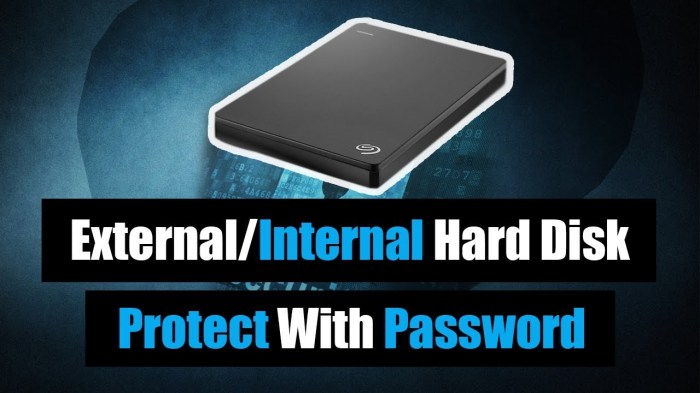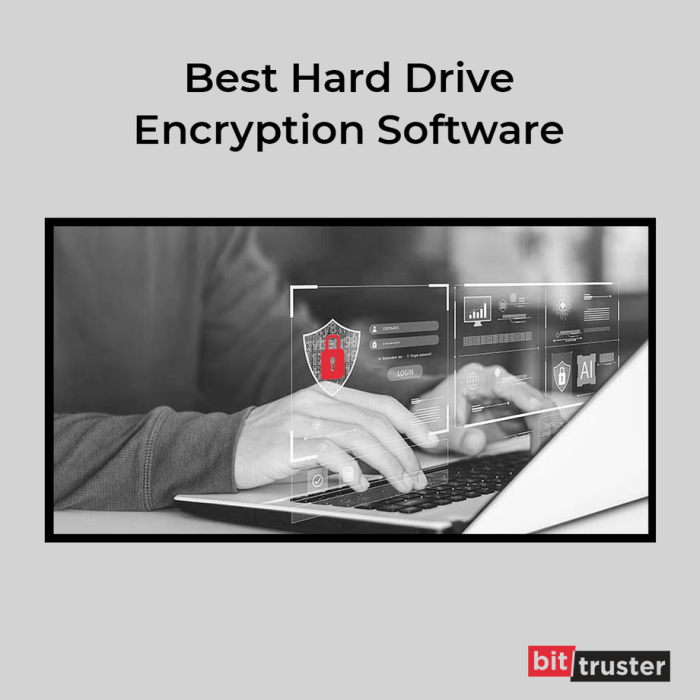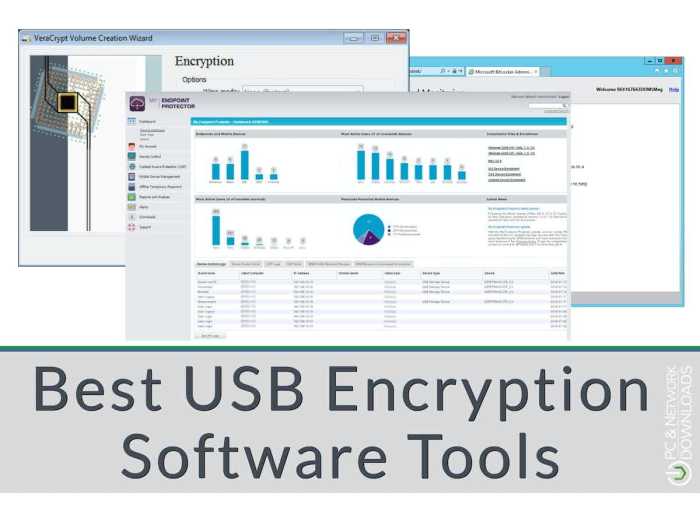Best encryption software for external hard drive – Protecting sensitive data stored on external hard drives is paramount in today’s digital landscape. Whether you’re storing personal photos, financial documents, or confidential work files, robust encryption is crucial to safeguard your information from unauthorized access. This comprehensive guide explores the best encryption software options available for securing your external hard drives, providing detailed insights into their features, security protocols, and ease of use.
We’ll delve into various aspects, helping you choose the perfect solution for your needs.

Source: weebly.com
Understanding Encryption and its Importance for External Hard Drives: Best Encryption Software For External Hard Drive
Encryption transforms readable data (plaintext) into an unreadable format (ciphertext) using a complex algorithm and a cryptographic key. Only those possessing the correct key can decrypt the data and restore it to its original form. This process significantly enhances data security, protecting it from theft, loss, or unauthorized access, even if the hard drive is lost or stolen. For external hard drives, which are inherently more vulnerable due to their portability, encryption is an essential security measure.
Types of Encryption Algorithms
Several encryption algorithms are used in software designed for hard drive encryption. Understanding these algorithms helps you assess the strength of the encryption offered by different software options. Common algorithms include:
- AES (Advanced Encryption Standard): Widely considered the gold standard, AES offers strong encryption with various key lengths (128-bit, 192-bit, 256-bit), providing varying levels of security. 256-bit AES is generally considered the most secure.
- Twofish: A strong symmetric block cipher, Twofish is known for its security and speed. It’s often used in conjunction with other algorithms for added protection.
- Serpent: Another robust symmetric block cipher, Serpent offers high security but is generally slower than AES.
The choice of algorithm often depends on the software’s implementation and the balance between security and performance. Look for software utilizing AES-256 for optimal protection.
Best Encryption Software for External Hard Drives: A Detailed Comparison
Choosing the right encryption software depends on your specific needs and technical expertise. Here’s a comparison of some top contenders:
1. VeraCrypt
VeraCrypt is a free, open-source disk encryption software based on TrueCrypt. It’s known for its robust security, supporting various encryption algorithms including AES, Serpent, and Twofish. VeraCrypt allows you to create encrypted containers or encrypt entire partitions/drives, offering flexibility in how you protect your data. It’s a powerful option for technically proficient users.
2. BitLocker (Windows)
Built into Windows operating systems (Pro and Enterprise editions), BitLocker provides full disk encryption. It’s relatively easy to use and offers strong security. However, it’s limited to Windows systems and may require a TPM (Trusted Platform Module) for optimal security. BitLocker offers a convenient solution for Windows users who need robust built-in encryption.
3. FileVault (macOS)
Similar to BitLocker, FileVault is Apple’s built-in disk encryption for macOS. It’s user-friendly and offers strong encryption, protecting your entire hard drive. FileVault integrates seamlessly with the macOS ecosystem, making it a natural choice for Mac users. FileVault is a great option for ease of use and integration within the Apple ecosystem.
4. LUKS (Linux Unified Key Setup)
LUKS is a disk encryption standard commonly used in Linux distributions. It’s a versatile and secure option, supporting various encryption algorithms and key management schemes. While requiring some technical knowledge, LUKS offers a highly secure and flexible solution for Linux users. LUKS provides a robust and flexible encryption solution for those comfortable working within a Linux environment.
5. DiskCryptor, Best encryption software for external hard drive
DiskCryptor is a free, open-source software for encrypting hard drives and partitions under Windows. It supports various encryption algorithms and offers features such as pre-boot authentication and key file protection. DiskCryptor is a solid choice for Windows users seeking a free and reliable encryption solution.
Choosing the Right Software: Factors to Consider
Selecting the best encryption software involves considering several factors:
- Operating System Compatibility: Ensure the software is compatible with your operating system (Windows, macOS, Linux).
- Encryption Algorithm: Look for software using strong encryption algorithms like AES-256.
- Ease of Use: Consider your technical expertise. Some software is more user-friendly than others.
- Performance Impact: Encryption can slightly impact system performance. Consider the trade-off between security and speed.
- Cost: Some software is free and open-source, while others are commercial products.
- Key Management: How are your encryption keys managed and protected? A strong key management system is essential.
Frequently Asked Questions (FAQ)
- Q: Is encryption truly necessary for external hard drives? A: Yes, especially if the drive contains sensitive data. Encryption significantly reduces the risk of data breaches in case of loss or theft.
- Q: How do I choose the right key length for my encryption? A: For maximum security, choose 256-bit AES encryption. This provides a very high level of protection.
- Q: What happens if I lose my encryption key? A: You will lose access to your encrypted data. Therefore, it’s crucial to securely store your key.
- Q: Will encryption slow down my computer or external drive? A: Yes, there will be a slight performance impact, but modern encryption algorithms are optimized for speed, minimizing the effect.
- Q: Can I encrypt only specific files or folders instead of the entire drive? A: Yes, some software allows for file/folder encryption, while others encrypt entire drives or partitions. Choose the option that best suits your needs.
- Q: Is it safe to use free encryption software? A: Many reputable free and open-source options exist. However, always research the software and its reputation before using it.
Conclusion
Protecting your data on external hard drives is a critical aspect of digital security. By carefully considering the factors discussed and choosing the right encryption software, you can significantly enhance the security of your sensitive information. Remember to regularly back up your encryption keys and practice good data security habits.
Call to Action
Choose the encryption software that best suits your needs and start protecting your valuable data today! Don’t wait until it’s too late. Secure your external hard drive now.
FAQ Corner
What is the difference between hardware and software encryption?
Hardware encryption uses a dedicated chip on the drive itself to encrypt data, while software encryption uses software installed on your computer to encrypt the data before it’s written to the drive. Hardware encryption is generally considered more secure as it’s less susceptible to software vulnerabilities.
How do I choose an encryption key?
Choose a strong, unique passphrase that is difficult to guess. Avoid using easily identifiable personal information. Longer passphrases are more secure. The software should provide guidance on creating a robust key.
What happens if I lose my encryption key?

Source: justpaste.it
Losing your encryption key means you will likely lose access to your data permanently. It’s crucial to store your key securely, perhaps using a password manager, but never store it on the encrypted drive itself.
Is it necessary to encrypt a drive containing only photos?

Source: pcwdld.com
While photos may seem less sensitive than financial records, they can still hold personal value. Encryption adds a layer of security, protecting them from theft or unauthorized access, especially if the drive is lost or stolen.
